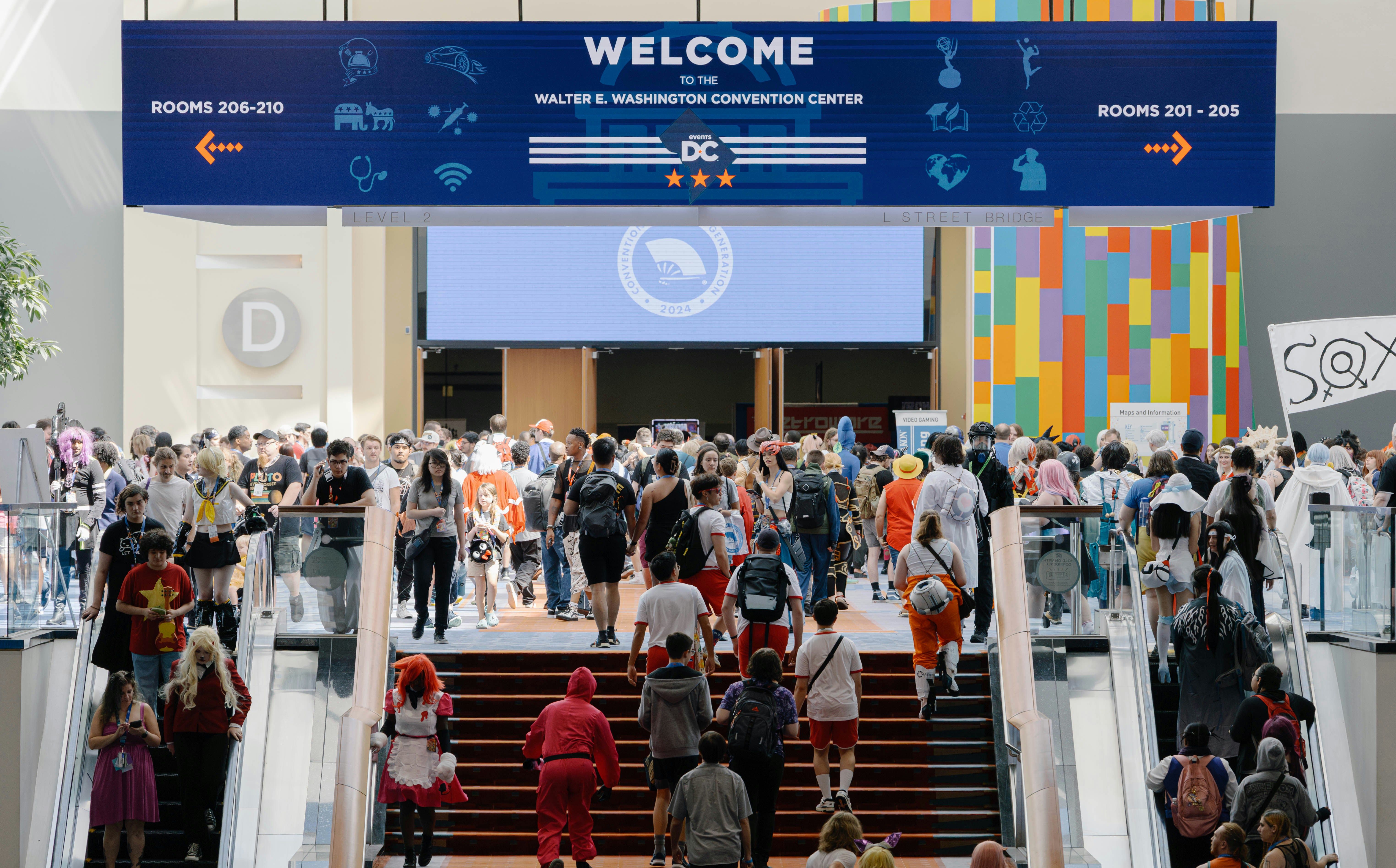MCI's Green Push: Rethinking Event Sourcing

Skift Take
Global events agency MCI is implementing a new environmental, social, and governance (ESG) framework across its procurement operations, signaling a shift in how it approaches sustainability.
The company aims to achieve net-zero emissions by 2030 for its operations and has set a target for its entire value chain to reach net-zero by 2050. These are tough targets for a company that is growing steadily.
“What I call the basic sustainability — you know, the paperless, the no plastic, the local seasonal food, the more vegetarian, all the things that, for me, are starting to be the basic things that we should implement in the event — we cannot charge for that,” said Erica Fawer, MCI’s internal communication director and sustainability integration director. “It’s part of our culture of care and responsibilities, our USP [unique selling point],” she added.
Fawer was speaking alongside Quentin Remy, MCI’s head of global procurement & strategic sourcing, at the recent MCI CheckedIn event. The event brought together the company’s procurement specialists from around the world with senior sales representatives of major hotel chains. A core objective was to get buy-in from hotel partners. Remy said MCI’s desire is to “involve all of our value chain on a global and on a local level. We want to use the strength of MCI. We have those partners and we believe that we need to use them to solve our ESG problems.”
The Need for Standardized Sustainability Metrics
The framework emerged from MCI’s role as the official housing agency for the UN Climate Conference (COP26) in Glasgow in 2021. The company developed a supply chain assessment system, evaluating nearly 200 hotels representing 8,000 rooms across Glasgow and surrounding regions.
“We managed to make a score out of it. The UN was very happy because it was kind of a new thing to actually involve sustainability rating into the decision-making of the group and the individuals that were coming to the conference,” said Remy. “It’s no longer just rates or where the hotel is. You also have the sustainability rating.”
The same assessment system, based on 29 standardized questions, has now been integrated into MCI’s customized version of Cvent, allowing for consistent sustainability scoring across properties.
“We need an apple-to-apple thing so that we can compare the same thing. It needs to become an SOP. It needs to be a fast and easy process,” said Remy. Each property now has an ESG assessment score in the system, allowing MCI’s planners to factor sustainability metrics into their venue selection process alongside traditional criteria like location and price. This also allows for conference attendees to make an informed decision on their hotel booking options.
Navigating Implementation Challenges
While MCI’s sustainability framework is gaining traction internally, implementation requires building on the partnerships with major hotel chains that provide 70% of their total room inventory comprising 40,000 properties globally. Some chains have shown resistance to adopting more stringent sustainability practices or revealing data that may have their properties score lower than competitors.
The company’s approach focuses on working with willing partners while maintaining pressure for industry-wide improvements.
Integrating Sustainability into Business Practices
Despite progress, there is often talk of sustainability, but little action.
To support the new framework, MCI is using two tools for carbon footprint measurement: myclimate Carbon Tracker for basic measurement and offsetting capabilities, and TRACE by isla which offers a more detailed analysis for recurring events. MCI has made it clear that it sees a business opportunity in building sustainability strategies for clients, not in basic measurement.
The company’s voluntary adherence to Global Reporting Initiative (GRI) standards in its most recent financial and sustainability report helps build trust with public companies that must meet similar standards in their own sustainability reporting.
Its annual report showed that revenue increased 6% in 2023 to $515 million (€493.1 million) in 2023 and EBITDA from operations rose 29% to $31.9 million (€30.5 million). The report also detailed the company’s sustainability initiatives and discloses information about its ownership structure: The Tondeur family owns 37% of shares, senior management holds 43%, and private equity investors hold the remaining shares.
The new framework comes as the European Union rolls out environmental regulations that will affect the events industry. Beyond the Corporate Sustainability Reporting Directive (CSRD), companies must navigate the Nature Restoration Law, Green Claims Directive, and Ecodesign for Sustainable Products Regulation.
“For a long time sustainability was like, it’s nice to have, it’s great, it’s a feel good. But there are some key deadlines if we want things to move forward and change,” Fawer said. “Now there are laws to force us to do that. It’s the same process as we did for our data protection, GDPR.”
Looking Ahead
The success of MCI’s framework, particularly its Cvent-integrated sustainability scoring system, could set new standards for the events industry. However, questions remain about widespread adoption and implementation costs. As new EU regulations come into force, other event agencies will need to step up, but the sheer magnitude of the task is daunting.
“It’s an opportunity also for our clients, maybe generate more revenue, attracting different attendees because of whatever we implement around sustainability that is aligned with the company values or the association values,” Fawer said.
As regulatory requirements increase and clients face their own sustainability pressures, MCI’s early moves in standardizing sustainability metrics could prove advantageous. The company’s ability to leverage its COP26 experience into a practical, scalable system, while navigating complex relationships with hotel partners and addressing evolving EU regulations, may provide a blueprint for the industry’s sustainable future.





